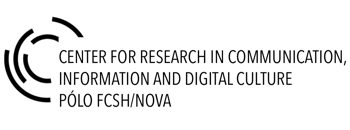Venue: Concordia University, Montreal, Canada, August 11, 2017
We invite submissions for a preconference on media sociology to be held at Concordia University on Friday, August 11, 2017. (This is one day before the start of the annual meeting of the American Sociological Association in Montreal.) To encourage the widest possible range of submissions, we have no pre-specified theme again this year and invite both theoretical and empirical papers on any topic related to media sociology. Submissions from graduate students and junior scholars are particularly welcome.
This preconference, now in its fifth consecutive year, is linked to an effort to strengthen media sociology within the ASA: After a long period of negotiation, the media sociology steering committee was able to broker a deal with the Communication and Information Technologies section (CITASA) at the end of 2014. CITASA officially changed its section name to “Communication, Information Technologies and Media Sociology” in 2015 and is officially sponsoring the Media Sociology Preconference in 2017. *Free registration to the preconference will be offered to all current CITAMS members. *
Media sociology has long been a highly diverse field spanning many topics, methodologies, and units of analysis. It encompasses all forms of mass-mediated communication and expression, including news media, entertainment media, as well as digital (“new”) and non-digital (“old”) media. Outstanding research exists within the different subfields both within and beyond the discipline of sociology. Our aim is to create dialogue among these disparate yet complementary traditions.
Papers may be on a variety of topics including, but not limited to:
-production processes and/or media workers
-political economy (including the role of the state and markets)
-media and the public sphere
-mediatization
-media content
-the Internet, social media, cellular phones, or other technology
-the digital divide
-new uses of media
-media globalization or diaspora
-media effects of media consumption
-identity, the self, and media
Invited Speakers
Past keynote speakers have included Dhiraj Murthy (Goldsmiths, University of London), Clayton Childress (University of Toronto – Scarborough), and Eric Grollman (University of Richmond).
We are please to announce that this year’s keynote speaker will be Nicholas Boston (Lehman College, CUNY).
A special plenary session in the afternoon “Intersectionality and Media” will feature CJ Pascoe, Laura Robinson, Apryl Williams, and dditional invited speakers to be announced in due course.
Submissions
We will accept both individual abstract submissions and fully-constituted panel submissions (of 4-5 participants).
Individual paper submissions should include:
-Title, name and affiliation, and email address of author(s).
-Abstract of 150-200 words that discusses the problem, research, methods and relevance.
-Use Microsoft Office or PDF format.
Panel proposal submissions should include:
-Title of panel and 100-word rationale.
-Titles, names and affiliations, and email addresses of panelists.
-Abstracts of 150-200 words for each presentation that discusses the problem, research, methods and relevance.
-Use Microsoft Office or PDF format.
Send submissions to casey.brienza@gmail.com <mailto:casey.brienza.1@city.ac.uk>. Please write “Media Sociology Preconference” in the subject line.
Abstract deadline is March 31, 2017
Notification of acceptance will occur sometime in mid-April.
Contact Casey Brienza (casey.brienza@gmail.com <mailto:casey.brienza.1@city.ac.uk>) for more information about the preconference.
http://asamediasociology.blogspot.com/2017/01/call-for-papers-media-sociology.html
